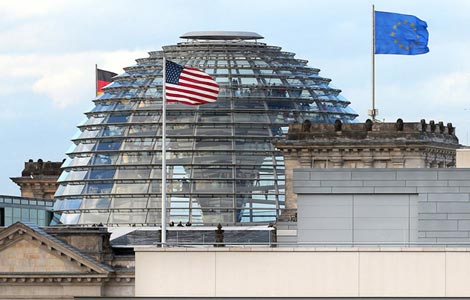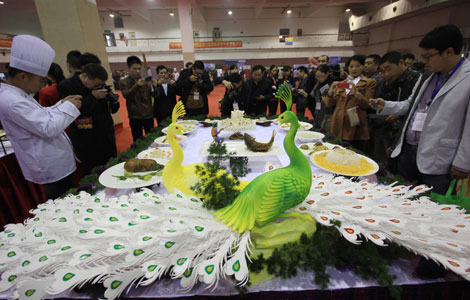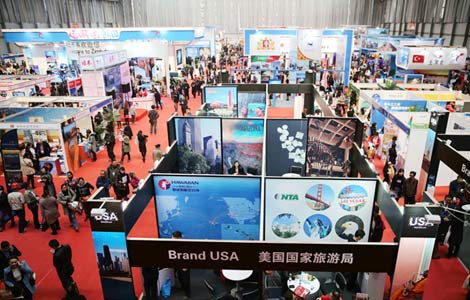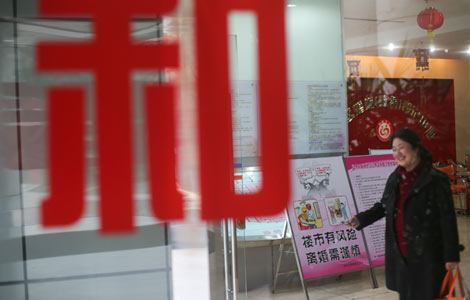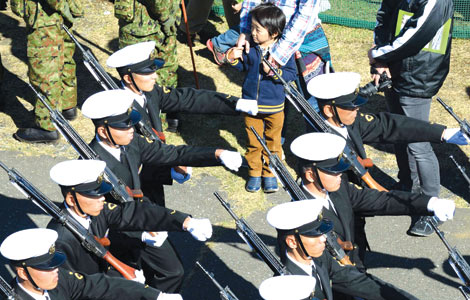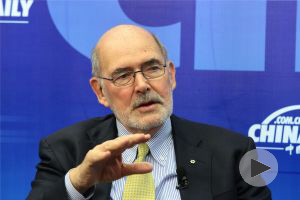Building relations 'brick by brick'
Updated: 2013-10-30 06:59
(China Daily USA)
|
||||||||
Q+A: Yasushi Akashi
Since September 2012, there has been a greater amount of tension between China and Japan. But recently, people from both countries have been pooling their wisdom to find solutions to the stalemate. In an interview with China Daily Tokyo Bureau Chief Cai Hong, former UN under-secretary-general Yasushi Akashi explains what needs to be done to break the deadlock. Akashi is chairman of the board of trustees of the International House of Japan, a nonprofit, nonpolitical organization. Here are some excerpts from that interview:
You've been closely involved with the Beijing-Tokyo Forum, which convened in Beijing last weekend. What does this kind of venue mean for China-Japan relations?
Firstly, I think the Beijing-Tokyo Forum was a large meeting of diversified people from China and Japan. We of course have the government-to-government relationship, which is central to all other relationships between the two countries. But I think that we have to give this official relationship more depth by bringing in more people. It is a complex one that includes economic, cultural, political and media relations. It is a multidimensional relationship. I'm very happy to say that ties between the two have evolved into more of a people-to-people relationship. It's not a superficial one, and it requires very careful handling. Our future relationship will be even larger and more complex, but more rewarding for both nations.
What should the two countries do to break the present deadlock?
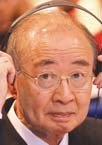
I'm very concerned about the deadlock. This is the worst situation between the two countries since 1972, when the two normalized diplomatic relations. We must thank (the old politicians). From China, we must thank Mao Zedong, Zhou Enlai and many other important people. From Japan, we must thank Kakuei Tanaka. They believed there would be no peace in the world unless China and Japan became friends. In the complex relationship between neighbors, there are inevitable ups and downs. I think we shouldn't be too upset when relations hit low points at times. But we should not handle this relationship too emotionally, and we should not handle it with indignation and self-righteousness. We should accept that there will always be problems among neighbors. What is important is not to exaggerate and escalate problems. We should discuss problems calmly, in a businesslike manner. If we do that, we can avoid the ups and downs and have an easier relationship.
Some Japanese politicians are planning to visit China, including Democratic Party of Japan leader Banri Kaieda. Should we see these new developments as a sign of a breakthrough?
It is not easy to have a breakthrough. It's better for us to build it brick by brick so that we can have a beautiful building in the end. I hope that these developments are good signs. In this world, we are always hopeful. I am an optimist. If there is no hope, there is no point in living in this world, right? Our hope, our vision and our aspiration for the future are to improve the world and create more peace and friendship.
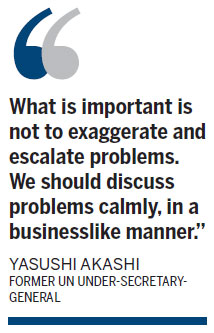
The (Shinzo) Abe administration is actively pursuing security cooperation deals with ASEAN countries. Some Japanese scholars and newspapers have spoken out about Abe's intention, saying it is to check China's rise. What is your opinion?
I wonder what the diplomatic moves and countermoves will achieve. Sometimes these moves are to strengthen your position vis-a-vis your supposed rivals' positions. But sometimes intentions may be quite different. Even so-called rivals may or can be partners. So if you start creating rivals, you have to prepare yourself for a race with your rivals. We are not engaged all the time in the zero-sum game. Sometimes, the game is a plus-sum game, which is a win-win situation.
There is a lot of talk about the rise of China in Asia and the rest of the world. What do you think of China's rise?
To be accurate, China is actually rising up again. Up until the 18th century, China was a big power in Asia and in the world. But in the 19th century under the Qing Dynasty (1644-1911), China began its decline. From the mid-19th century to the mid-20th century, Japan was on the rise in Asia. But Japan became arrogant and aggressive and launched a colonial and imperialist war. It was defeated in 1945. Japanese people seriously regret what happened. They realize a serious mistake was made by their leaders. I don't think that we should consider China as a menace to Asia or to the world.
There is a lack of trust between China and Japan. How should the two countries build trust and confidence in each other?
I am very concerned about the decline in relations between Chinese and Japanese people. Opinion polls indicate that 90 percent of Japanese people and 90 percent of Chinese people distrust one another. This is very bad. The issue over the Diaoyu Islands has exacerbated these feelings. There are better things we can do and must do. We must have more exchanges of information, movies, songs, animations, dances and sports. We can do many things to understand each other. China is in the midst of its industrialization, but there are problems with its industrial sectors. We can discuss these problems and exchange technologies. We should work together instead of fighting over small, uninhabited islands. Why can't we fish together?
In six months, Japanese Prime Minister Abe will have met Russian President Vladimir Putin on four occasions. At the APEC summit in Bali, Japan and Russia decided to have a "two-plus-two" meeting among its foreign and defense ministers. What is your opinion of Japan-Russia relations?
This shows that despite their very serious territorial problems, Russia and Japan can still be friends. China and Japan have a much smaller territorial problem. Therefore, what is preventing us from becoming good partners and friends? This is what I ask myself.
Since taking office, Japanese Prime Minister Abe has been busy visiting foreign countries. What is your comment on his foreign policy?
Prime Minister Abe is more active than his predecessors in strengthening Japan's relations with other countries. The world is getting smaller and smaller. Our interests are overlapping more and more. So I'm happy that Mr Abe is visiting so many countries. Previously, Japanese politicians always stayed in Japan, fighting each other. I am in favor of him.
(China Daily USA 10/30/2013 page6)
Most Viewed
Editor's Picks

|

|

|

|

|

|
Today's Top News
China's population policy unchanged
Boston victim's scholarship fund reaches $1m
Beckham picks Miami for MLS franchise
UN urges end of US embargo on Cuba
IMAX: Coming to a home near you
SUNY recruits students in China
NSA denies reports on US spying in Europe
US approves chemical probes against China
US Weekly

|

|


